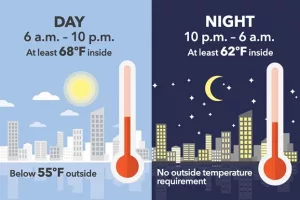NYS and NYC Transfer Taxes (2025)
Go Back To Previous PageOur NYS and NYC Transfer Tax article will explain these taxes, who is responsible for paying them, how they came about, whether it’s possible to avoid them, and how to save money on transfer taxes and other closing costs.
What Is The NYS and NYC Transfer Tax?
 New York City and New York State always seek ways to generate revenue. The real estate transfer tax is a significant source of income for them.
New York City and New York State always seek ways to generate revenue. The real estate transfer tax is a significant source of income for them.
The NYC transfer tax, or RPTT (Real Property Transfer Tax), applies to all real property transfers and cooperative shares over $25,000.
It also applies to transfers of control (over 50%) in any corporation that owns property. This tax generated over $1.5 billion in revenue for NYC and is one of the highest closing costs for most sellers.
What is the New York City Transfer Tax Rate?
The New York City transfer tax applies to all residential properties, including condominiums, co-op units, and one—to three-family houses. It ranges from 1% for properties under $500,000 to 1.425% for properties above $500,000 and applies to all residential real estate transactions.
Like the mansion tax, the transfer tax is based on the purchase price, not the appraised value. For example, if you sell a property for $400,000, you will pay NYC a $4,000 tax. However, if you sell a home for $1,000,000, you will pay $14,250.
What Is The NYS Transfer Tax?
 New York State imposes its transfer tax on all property transfers above $500. In July 2019, New York State passed a new law that added a second transfer tax to NYC’s residential and commercial properties that sell for more than $3 million and $2 million, respectively.
New York State imposes its transfer tax on all property transfers above $500. In July 2019, New York State passed a new law that added a second transfer tax to NYC’s residential and commercial properties that sell for more than $3 million and $2 million, respectively.
| Property | Price | NY Transfer Tax | NYC Transfer Tax | Total Transfer Tax |
| NYC Condo | $1,500,000 | 0.4% or $6,000 | 1.425% or $21,375 | 1.825% or $27,375 |
| Westchester House | $975,000 | 0.4% or $3,900 | N/A | 0.4% or $3,900 |
| NYC Co-op | $475,000 | 0.4% or $1,900 | 1.0% or $4,750 | 1.4% or $6,650 |
| NYC Office Building | $125,000,000 | 0.65% or $812,500 | 2.625% or $3,281,250 | 3.275% or $4,093,750 |
What is the New York State Transfer Tax Rate?
The NY State transfer tax rate is 0.4% for properties that sell for less than $3,000,000, with an additional 0.25% for properties that sell for $3,000,000. That means the total effective NYS transfer tax for a $3 million property will be 0.65%.
For example, if you sell a $1,000,000 condo, you will pay $4,000 to New York State and $14,250 to the city, while if you sell a $3,000,000 condo, you will owe New York State $19,500.
Who Pays The NYS and NYC Transfer Tax?
The seller is responsible for paying the transfer tax. The one main exception is for anyone purchasing in a new development, as sponsors will often try  to pass the tax on to buyers. However, this is highly negotiable and usually dictated by the overall state of the real estate market. If the market is hot, sponsors will insist on passing the tax along to buyers, while if it’s a soft market with buyers in control, they can quickly negotiate that the sponsor covers the charge.
to pass the tax on to buyers. However, this is highly negotiable and usually dictated by the overall state of the real estate market. If the market is hot, sponsors will insist on passing the tax along to buyers, while if it’s a soft market with buyers in control, they can quickly negotiate that the sponsor covers the charge.
The only exception when a buyer must pay the tax is if the seller decides to skip town. If this happens, the buyer will become responsible for the transfer tax. The local and state governments are getting paid.
If you’re selling a home in NYC, many real estate professionals will refer to your combined city and state tax dues as the “NYC Transfer Tax.”
What Is The History Of The NYC Real Property Transfer Tax?
New York City introduced the transfer tax in 1959 and has grown considerably. Initially, the fee only applied to the transfer of real property (meaning co-op sellers didn’t pay it). In 1959, sellers paid a 0.5% transfer tax, significantly less than the 1.425% city tax paid today.
Another local transfer tax to worry about is the mansion tax, introduced in 1989. Luckily for sellers, the purchaser pays the mansion tax.
Is There Any Way To Avoid The Transfer Tax?
You cannot avoid these taxes, as only the local and state governments tend to be exempt. Simultaneously, only a handful of properties are exempt (we’ll detail these situations below).
That said, you have some ways to mitigate the transfer tax’s cost, which we’ll describe shortly.
So, Who And What Is Exempt From the Tax?
The NYC Department of Finance website outlines the few exemptions here.
Exempted institutions include:
- The US Government and its agencies.
- The New York State govt, its agencies, and political subdivisions
- Any foreign government, any person acting on behalf of a foreign govt., or the head of a foreign govt’s diplomatic mission is exempt. The premises must be used exclusively for diplomatic or consular purposes. Other usages may result in tax payments.
Exempted transfers include those:
- To or from the UN or other worldwide organizations, the US is a member of
- To or from a non-profit organization
- Transfers are used to secure a debt.
- Transfers from an agent to its principal or vice versa
- By an executor of a will. At the sale, however, the transfer tax applies.
- Where beneficial ownership remains the same
- To any govt body that is exempt from paying the tax
How Can You Reduce Your Closing Costs And Mitigate the Transfer Tax?
Selling a property in New York City remains exceptionally costly because of the high closing costs. Not counting the traditional 6% broker commission,  transfer taxes represent sellers’ most considerable closing cost.
transfer taxes represent sellers’ most considerable closing cost.
Unlike commissions, transfer taxes are not negotiable and virtually impossible to avoid. The best way to mitigate these costs is to work with a broker who will charge you a lower fee to sell your home.
At NestApple, we offer a full-service listing service for as little as 1%. The best NestApple agents will market your property, and you will save tens of thousands of dollars in closing costs by paying a lower commission.


